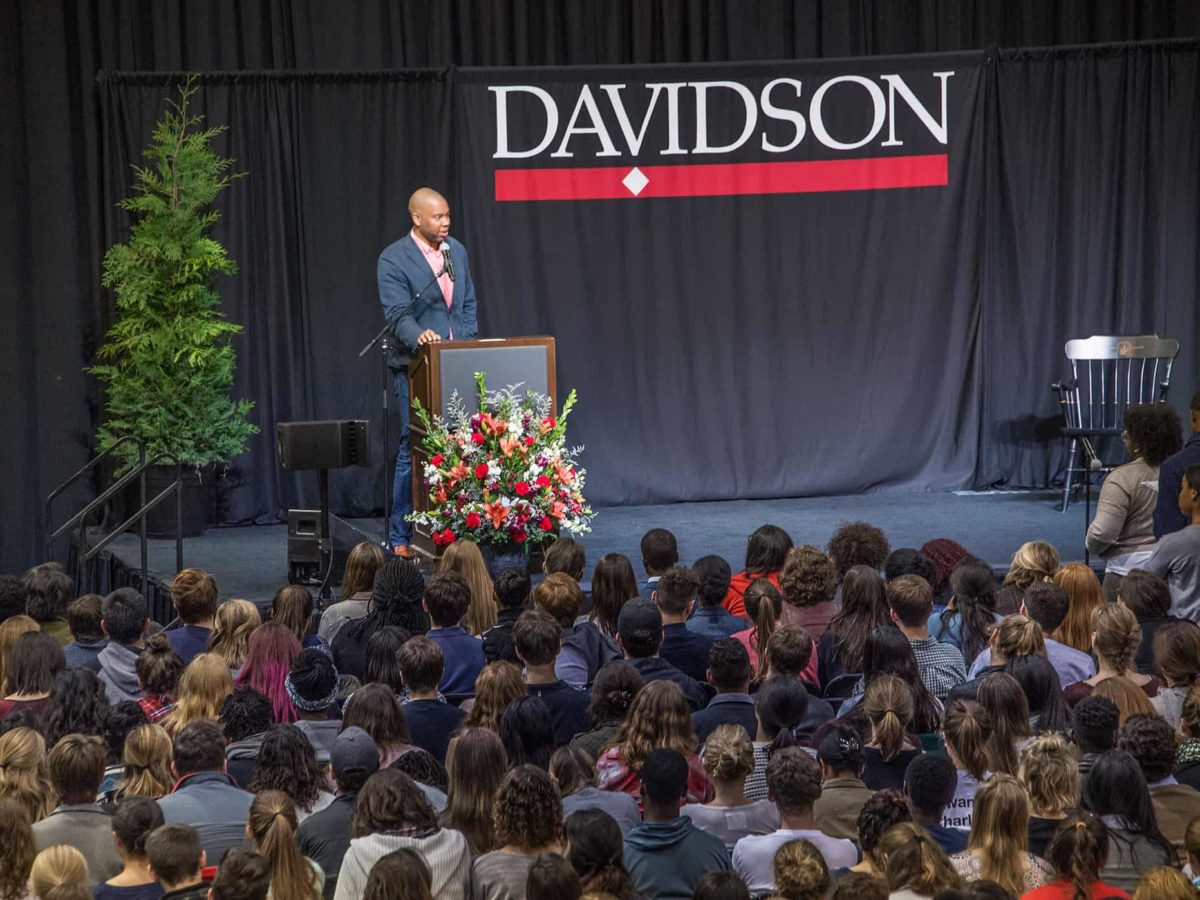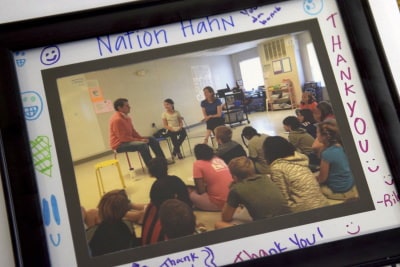
Ta-Nehisi Coates represents something rare in writing these days — a sudden celebrity based off of his words and his ideas.
Coates seems to be as amazed by his ascension as anyone. Two weeks ago at Davidson College he stood in front of a large crowd and all but giggled. He looked around the arena as if he were counting the crowd, later commenting that it was the largest crowd of his book tour thus far.
Yet despite the chuckles that Coates allowed at times, the conversation that unfolded was one of profound seriousness for the 4,000-plus in attendance.
Coates spent much of the lecture discussing what he called systemic racism, describing the “criminalization of the black body” throughout the history of the United States beginning with the slave codes that were authored initially during colonial times, the Mississippi law that called on able-bodied white men to serve in a militia to round up runaway slaves, and the United States Constitution due to the three-fifths compromise. He would declare, “the presumption of criminality of black people is deeply written into the bones of this country.”
Discussing systems that have been built over centuries can seem overwhelming for those who wish to create change. This would come to the surface during the question and answer session when a student asked Coates what they could do to address system change when the issues seem so daunting.
Coates responded, “Everything is not up to you, you can’t actually control everything. The weight of history is bearing down on you. Personally, I was selfish. My goal was to be the best writer of my generation. I encourage you to find your trade, practice that trade at a real high level, and direct it to the causes that you believe in. I have certain priorities and I angle it towards that. People do see you, and you can speak truth, and people can turn around and say they saw something in that.”
Coates summed it up by saying, “I write to have some degree of liberty from the lie.”
All of us need to consider system change in bold strokes.
The Ford Foundation, for example, recently recast their focus on combating inequality, challenging the philanthropic sector to reconsider Andrew Carnegie’s “prosperity gospel” in light of the fact that much of philanthropy has been powered by fortunes that built the systemic inequality in the first place.
Yet even the Ford Foundation does not have the resources to do that by themselves. If they make strides, it will be on the backs of thousands upon thousands of people from all over the country and the world acting in their own communities, in their own way to create change.
Coates reminded me of the famous remarks of Robert F. Kennedy at Cape Town in 1965. “Each time a man stands up for an ideal, or acts to improve the lot of others, or strikes out against injustice, he sends forth a tiny ripple of hope, and crossing each other from a million different centers of energy and daring, those ripples build a current which can sweep down the mightiest walls of oppression and resistance.”
Coates challenged the students, and all who were in the audience, to consider how they might send forth their own ripples on the issues that they care most about.
Some criticism of Coates writing has argued that he denies the agency of people to control their own destiny, but in his remarks he came back to the idea of the ability of the individual to create change time after time on the issues that matter to each person.
For instance, Coates was asked why he had not spoken out on certain issues on college campuses. He said that a long time ago he decided that each individual only has so much political capital and ability to speak out if they are to be heard. He told the student he had decided that in order for him to speak out publicly on an issue that he needed to either live the experience or do his research in order to have some degree of expertise.
Again and again, he would return to the need for the audience to focus their energy on creating change in their own way with their own abilities.
Days later, Coates would be given the the National Non-Fiction Book Award. That evening he would echo his call from Davidson College saying,
“Find what’s in your heart, the work, the actual craft, and angle that towards justice.”
Regardless of your opinion on Coates’ views, that is advice that all of us should consider taking to heart.


